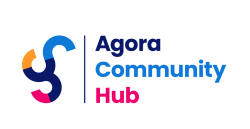Webinar: Connecting knowledge to policy and practice

Background
The Climate Adaptation Platform (CAP) webinar series builds on the discussions and potential collaborations initiated during the February 2024 webinar, which brought together EC-funded projects and CAPs. The first webinar identified key challenges and opportunities for fostering synergies and collaborations between EC projects and CAPs, and also highlighted the importance of continuing these dialogues within the right types of forums and engaging a broader community. Consequently, this series explores how CAPs influence policy implementation and drive action on the ground. The target audience for this webinar series includes platform owners and knowledge managers specifically.
Under the AGORA project, the second webinar in the series focussed on connecting online knowledge to policy and practice.
Summary
The webinar, held on Thursday, October 3rd, featured four presentations and a Q&A, followed by interactive discussion time. Presentations were given by national and regional CAPs, including:
- Bodil Ståhl, Swedish Knowledge Center for Climate Adaptation (klimatanpassning.se)
- Christopher Phillips, University College Cork (Climate Ireland)
- Rosie Witton, Stockholm Environment Institute (Agora Community Hub)
- Sukaina Bharwani, Stockholm Environment Institute (Connectivity Hub)
View the webinar slides:
Key messages from speakers

Bodil Ståhl
Acting Manager/Climate Adaptation Expert, National Knowledge Center for Climate Adaptation, Swedish Meteorological & Hydrological Institute
Platform presented: klimatanpassning.se
Bodil is a climate adaptation expert with extensive experience in agriculture and international development. At the Swedish Meteorological and Hydrological Institute (SMHI), she leads international training programs on climate change adaptation and mitigation, and serves as a climate adaptation expert with a focus on agriculture.
Key points:
- Support for climate adaptation: The Swedish National Knowledge Center for Climate Adaptation provides guidance and knowledge to help Swedish authorities and regions implement effective climate adaptation strategies. SMHI runs the platform klimatanpassning.se which offers guidance, tools, training courses, case studies, and resources to support adaptation efforts in Sweden.
- Engagement with policy: The platform collaborates closely with national and regional authorities, offering expert support, distributing funds for adaptation projects, and gathering feedback to ensure resources remain relevant.
- Challenges: Keeping the platform updated in a time-efficient manner and ensuring enough resources to maintain it are ongoing issues.
- Opportunities: A new content management system (CMS) will bring opportunities for improved features and easier collaboration with authorities, ensuring the website remains a vital resource for climate adaptation.

Dr Chris Philipps
Postdoctoral researcher, MaREI, the SFI Research Centre for Energy Climate and Marine
Platform presented: Climate Ireland
Chris is a postdoctoral researcher at the SFI MaREI Centre working on the MAGICA project, which supports climate policymaking and adaptation in Ireland. He has extensive experience in citizen science and environmental psychology, contributing to the Climate Ireland platform.
Key Points:
- Support for climate adaptation: Climate Ireland serves as Ireland’s central resource for climate adaptation, offering research-led guidance for stakeholders in climate policymaking and local authorities.
- Engagement with policy: The platform has developed tools like a semi-quantitative risk assessment methodology for local authorities, which has directly influenced national adaptation plans and assessments. Training programs delivered to local authorities have strengthened their climate action capacity.
- Opportunities: Continuous feedback from users allows for the development of new, more engaging courses that address the specific needs of different sectors, enhancing local and national climate resilience.

Rosie Witton
Research Fellow, SEI
Platform presented: The Agora Community Hub
Rosie is a Research Fellow at SEI Oxford, focussing on climate change adaptation. Her work focuses on co-designing climate adaptation solutions through the AGORA Community Hub. This project empowers communities to share their knowledge and experiences in climate adaptation, facilitating collaboration and knowledge exchange.
Key Points:
- Support for climate adaptation: The Agora Community Hub connects local communities with policymakers and researchers to co-create adaptation strategies, ensuring that local knowledge is central to decision-making.
- Engagement with policy and end users: AGORA emphasizes a participatory approach, providing discussion forums for citizens and stakeholders to share climate adaptation challenges and solutions, and offering synthesized resources tailored to users’ needs.
- Tools: The Agora Explorer allows users to find users, institutions, and climate adaptation projects in Europe. Additionally, discussion spaces on the platform foster knowledge sharing and collaboration.
- Opportunities: The co-production of knowledge by local communities and stakeholders presents significant opportunities for more inclusive and actionable climate adaptation strategies. Anyone is welcome to contribute on the Agora Community Hub – do visit the site to add your profile and organization and share your project(s) with other users!

Dr Sukaina Bharwani
Research Fellow, SEI
Platform presented: Connectivity Hub
Sukaina leads several work streams in large European and international projects and directs the weADAPT platform, one of the world’s leading platforms for climate change adaptation.
Key Points:
- Support for climate adaptation: The Connectivity Hub, developed through the MAIA and Directed projects, is a tool designed to aggregate and visualize content from diverse platforms, making climate adaptation knowledge more interoperable and accessible. By linking different platforms and fostering cross-platform collaboration, the hub enhances cooperation and allows for more efficient knowledge sharing across sectors.
- Tools: The Connectivity Hub employs advanced tools such as keyword tagging and semi-automated taxonomies to streamline search functionality and improve the discoverability of climate adaptation knowledge. These tools help users see how content across platforms is interconnected, offering a clear, visual representation of adaptation data, concepts, and resources.
- Challenges: A major challenge is the lack of standardization in tagging systems across platforms, as there is no universally accepted climate adaptation vocabulary. This makes coordination and integration of information more complex.
- Opportunities: To address this, the hub now uses AI to suggest terms based on context and includes scope notes with each keyword, helping users understand how specific communities interpret and use certain terms. This approach improves cross-platform collaboration and helps bridge the gap between different terminologies.
Open discussion
Key enablers, barriers and opportunities for collaborations were identified during the discussion and participants emphasised the need and interest for regular discussions connecting CAPs.
One key challenge discussed was finding the right balance in platform content and language—ensuring it’s neither too technical nor filled with jargon, while still providing sufficient depth for users. Attendees also emphasized the importance of creating user-friendly content and functionalities on platforms, along with regularly running Monitoring, Evaluation, and Learning (MEL) processes to assess what works and what doesn’t. There was a strong appetite for continued dialogue and exchange on these topics, with attendees expressing interest in developing joint proposals and collaborative sessions at future conferences.

What’s next? Let us know!
The CAPs webinar series plans to continue regular meetings with the next webinar planned for December. We invite you to participate in a brief survey to share the topics you’re most interested in and suggest the formats you’d prefer for future events. Your input will help shape the direction of our upcoming discussions on enhancing collaboration across CAPs.
If you have any questions or are interested in participating in future events, please contact Sukaina Bharwani: Sukaina.bharwani[at]sei.org.


Comments
There is no content